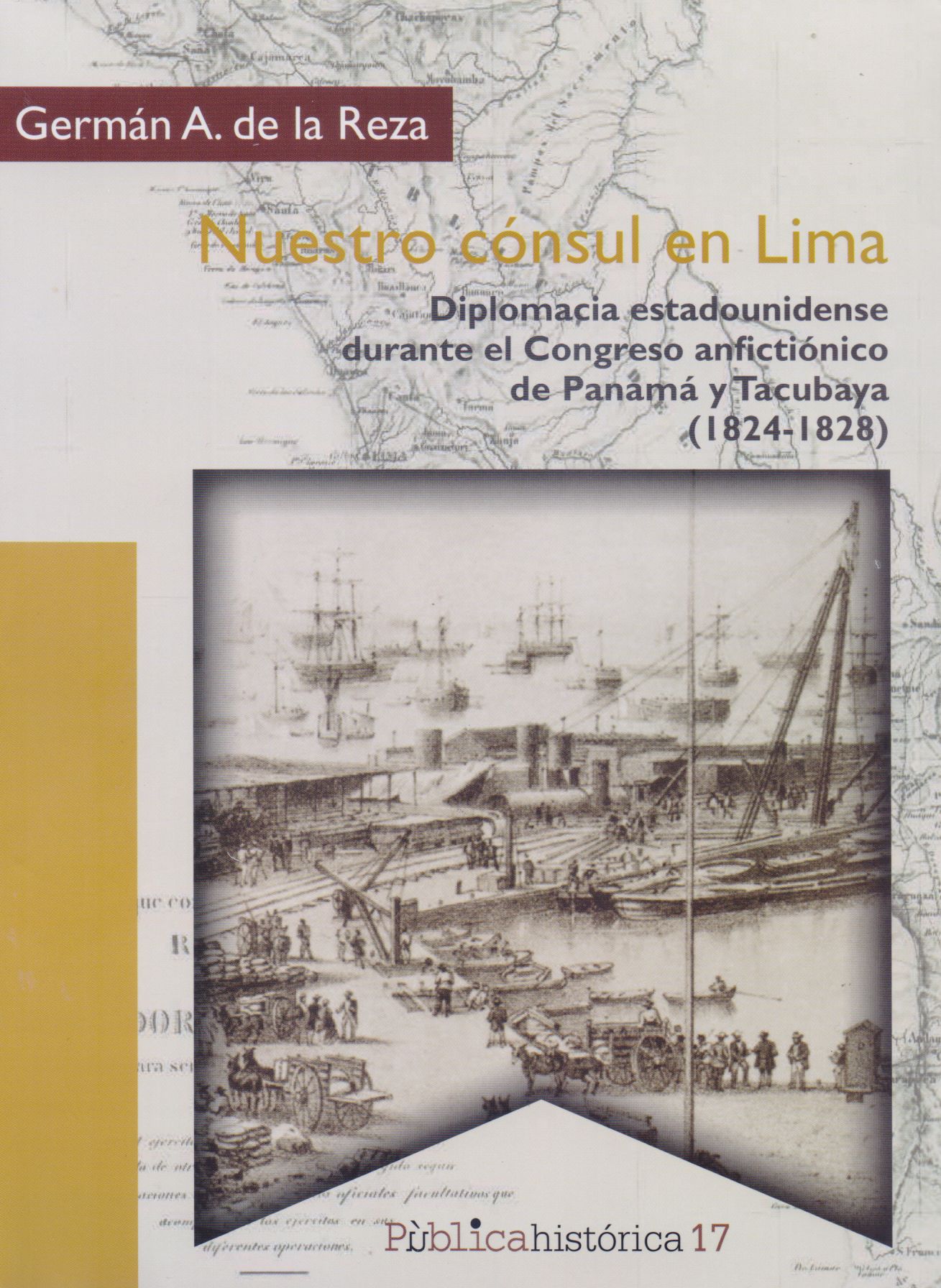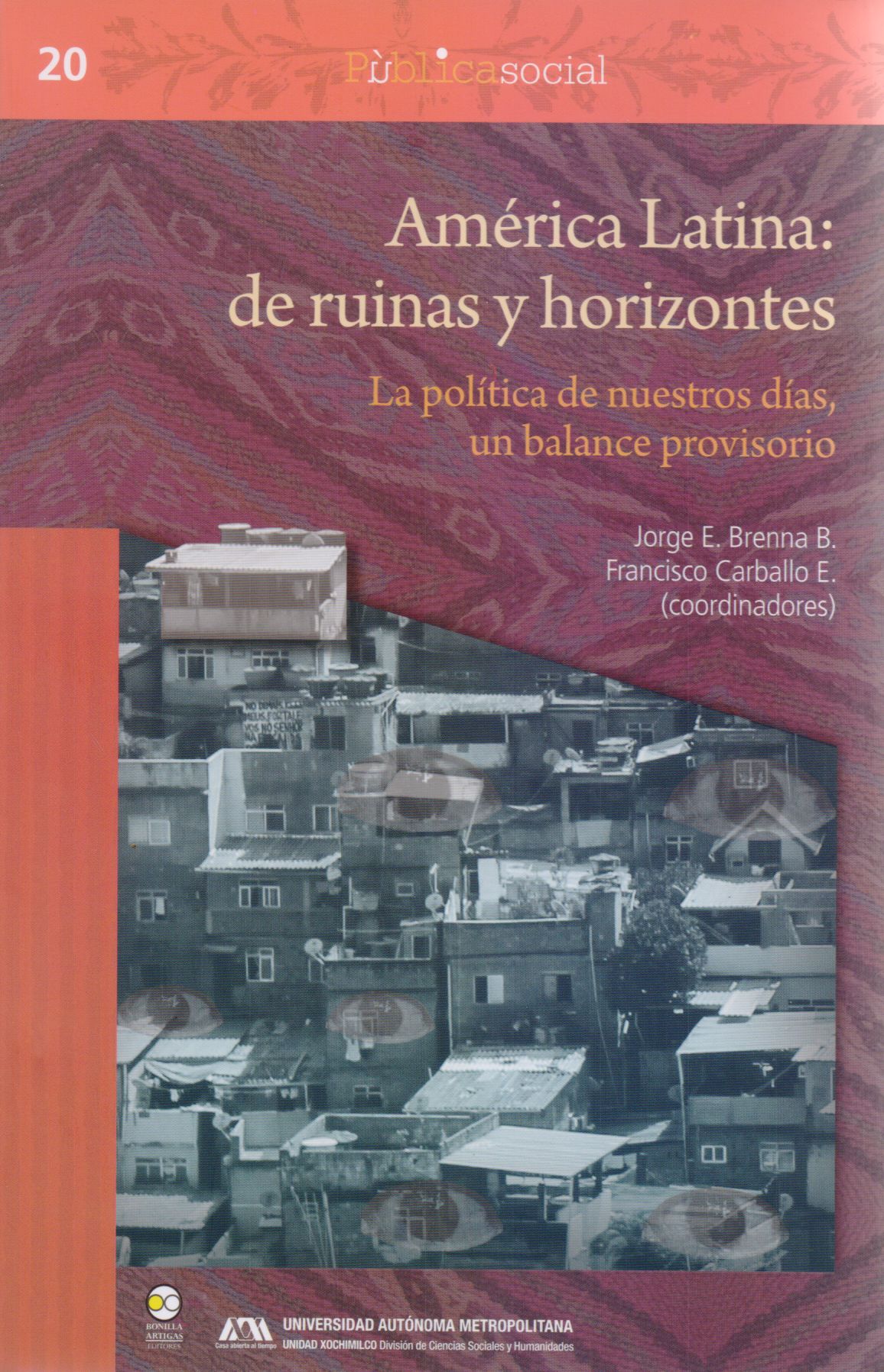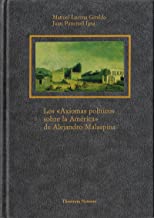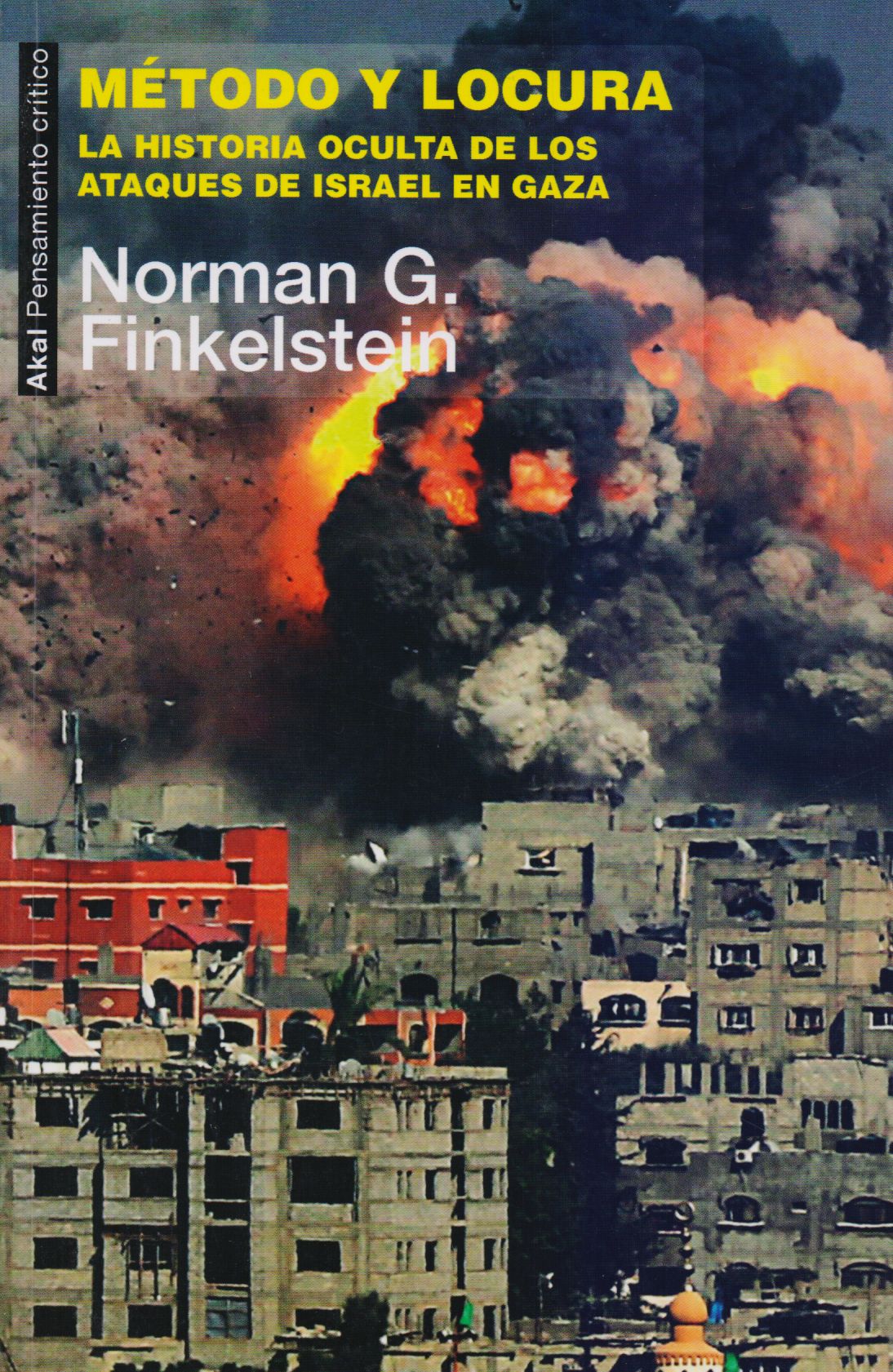Libros relacionados
 |
Nuestro Cónsul en Lima. Diplomacia Estadounidense Durante el Congreso Anfictióni De la Reza, Germán A. Bonilla Artigas Editores |
 |
Desafío de la Democracia, El: un Balance de la Argentina Contemporánea Gaggero, Horacio / Iriarte, Alicia / Roitberg, Humberto Ediciones del Signo |
 |
América Latina: de Ruinas y Horizontes. La Política de Nuestros Días, un Balance Brenna B. , Jorge / Carballo E. , Francisco (Coordinadores) Bonilla Artigas Editores |
 |
<<axiomas Políticos Sobre la América>> Los: de Alejandro Malaspina Lucena Giraldo, Manuel / Pimentel Igea, Juan Doce Calles |
 |
Ensayo Político Sobre la Isla de Cuba (Alejandro de Humboldt) Puig-Samper, Miguel Ángel / Naranjo Orovio, Consuelo Doce Calles |
 |
Narratives Of Identity In Social Movements, Conflicts And Change Hancock, Landon Emerald Group Publishing Ltd . |
 |
Política Económica: Elaboración, Objetivos e Instrumentos Cuadrado, Juan / Mancha, Tomás / Villena, José / Casares, Ja Mc Graw Hill Educacion |


|
Título: Group Of Twenty (G20), The | |
| Autor: Cooper, Andrew F. ; Ramesh Thakur | Precio: $480.00 | |
| Editorial: Routledge | Año: 2013 | |
| Tema: Politica | Edición: 1ª | |
| Sinopsis | ISBN: 9780415780896 | |
| This work offers a concise examination of the purpose, function and practice of the Group of Twenty (G20) summit. Providing a comprehensive historical account of the G20 Finance Ministers and Central Bank Governors process, the text then moves on to outline the conditions, events and debates that led to the formation of the permanent, expanded leaders' level forum. The historical span of the G20 Summit process is not long, but the global transformations that precipitated it are crucial when seeking to understand it.
Cooper & Thakur explore a variety of major debates, including: ¦Governance by self-selected groups versus mandated multilateral organizations ¦the legitimacy of informal leadership ¦the issue of the G20's composition of both `solution' countries and `problem' countries ¦the role of the emerging powers ¦new conceptions of North-South relationships This work offers a detailed examination of the ongoing shifts in economic power and the momentum toward global institutional reform, illustrating how the G20 has moved from a crisis committee to the premier global forum over this short but intense history, and mapping out its comparative advantages and key challenges ahead. |
||
Librería Bonilla SA de CV © Todos los derechos reservados. 2019
Última actualización: Jul 2019





